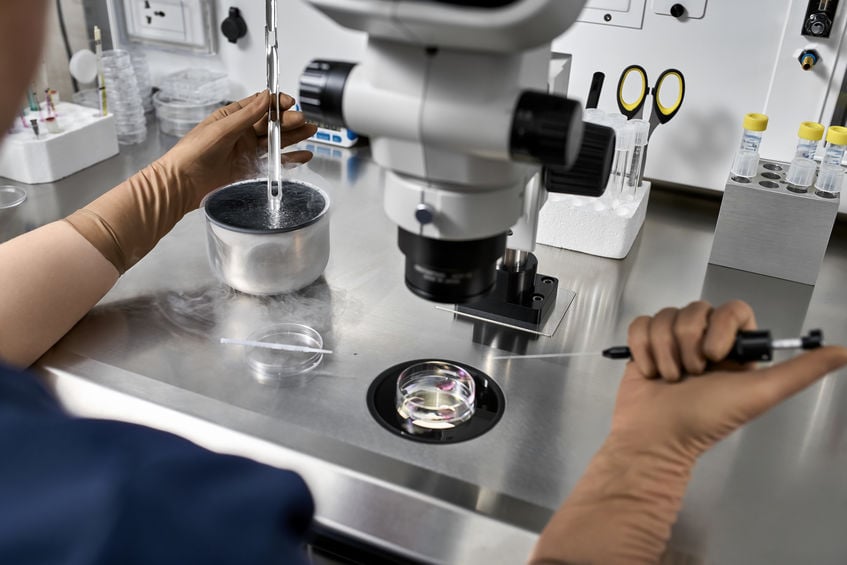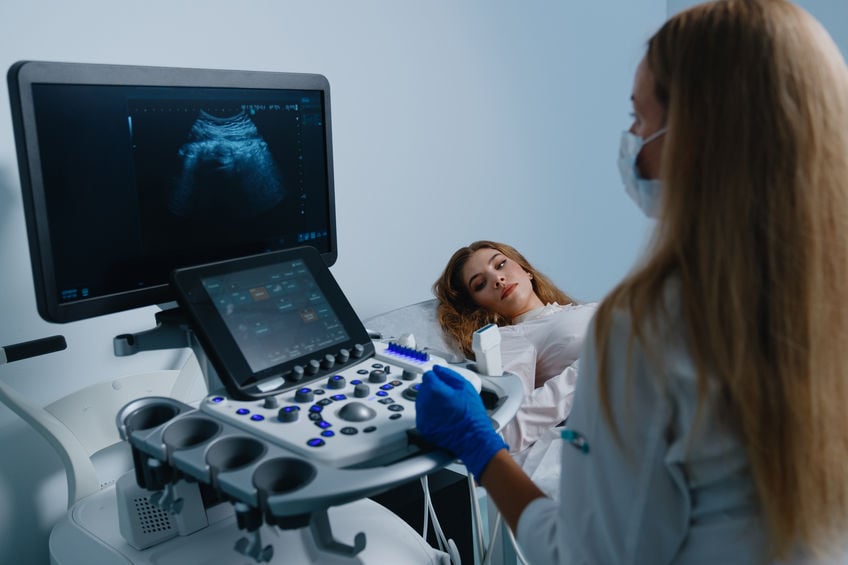Answers To Common Questions
A program start is a clinic appointment with your physician. At this appointment, your doctor will finalize the IVF plan, go over the risks of IVF in further detail, and sign the consent forms with you. The program start is the final step in the pre-screening process before starting your IVF treatment. All testing must be done prior to the program start visit.
Monitoring are appointments that involve blood work and/or vaginal ultrasounds. Monitoring appointments determine how your ovaries are responding to the medications. Monitoring is done throughout the duration of your fertility treatment – just before starting medications (baseline monitoring) and while you are on medications.
Call the main RMIA phone number 651-222-6050 and leave a voicemail with your name, phone number and reason for your call. Although we do not answer the phones on weekends, a staff member will contact you the following business day to schedule your appointment.
There are several reasons why birth control may be used before starting IVF treatment. Certain diagnostic tests for infertility must be done at a particular time in the menstrual cycle (after bleeding stops but before ovulation). Given the short window available, starting birth control can help with scheduling the tests in a timely fashion. Birth control can also be used to help synchronize the follicles in your ovaries as well your uterine environment to allow for optimal egg retrieval and embryo transfer results.
Most people will start the birth control pills on day 3 of their menses and continue taking active pills only until instructed to discontinue. If you have a 4-week pill pack, you will omit the last week of placebo pills and start with a new pack of birth control pills. Refills will be available at your pharmacy. Note: If day 3 ovarian reserve labs are ordered, start birth control pills AFTER the labs have been drawn.
Spotting or bleeding is a frequent side effect of birth control pills. It is not harmful to your health, but it can be annoying. Continue to take the pill daily until your official stop date. If the bleeding becomes too cumbersome, please let a nurse know. Nausea can be a common side effect, particularly in the first week. You can minimize the side effect by taking your pill nightly with food.
These over-the-counter medications are considered safe to use during pregnancy. As brand names and ingredients can change, please refer to the generic name in parentheses. Should you have questions or concerns, please call the clinic or your pharmacist.
First, check with your pharmacy for refill availability as most prescriptions are written to include refills.
• Always check your medication supply prior to the weekend so as to avoid refill problems over the weekend. After hours, it can be difficult to find a pharmacy that carries infertility drugs.
• If you are out of a particular medication, please call a member of our nursing staff. You will need to provide a pharmacy phone number at the time of your request.
• Subcutaneous (subq) – short needle should be used for: Follistim, Gonal-F, Lupron, Menopur, Ganirelex Acetate, Cetrotide, Lovenox, Ovidrel
• Intramuscular (IM) – long needle should be used for: Progesterone-in-oil and Estradiol Valerate. Pregnyl/Novarel/HCG can be given IM but only if instructed to do so.
Please call to schedule this. Our nursing staff is happy to accommodate this request with advance notice only.
If you need to be treated for a condition by another physician while you are undergoing fertility treatment, please inform the attending physician you are currently attempting pregnancy through infertility treatment. If the medication is considered safe during pregnancy, it is also safe for you to take during your infertility treatment.
RMIA is a subspecialty clinic, therefore, we see patients strictly for infertility treatment. Please contact your primary health care provider or obstetrician for routine health care and treatment of illnesses.
For nausea before nine weeks of pregnancy, eat frequent high carb, low fat meals and drink lots of fluids. You may be prescribed Pyridoxine (B6) 10-25mg 3 times a day. If no response in 2 days, take Unisom sleep tablets (doxylamine), not the Unisom sleepgels (diphenhydramine): half tablet 3 times a day and a full tablet at bedtime. Always check with your obstetrician first.
If you had labs drawn in anticipation for your first consultation visit, the labs results will be reviewed with you by the provider at your initial visit. We do not review labs over the phone if you have not yet seen us for a consultation.
If you have already met with a provider and labs were drawn following your initial appointment, your lab results will be available to you through your portal system.
The blood tests are drawn just as the pregnancy hormone is becoming detectable in your system. Comparing the value of your two tests allows your physician to accurately determine if there is an appropriate rise in pregnancy hormone.
Massage is OK provided they don’t perform any deep muscle massage of the lower abdomen. The use of acupuncture is supported by RMIA. However, do not take any herbs recommended by an acupuncturist during treatment. Please discuss this with your physician if using an acupuncturist during your treatment. A list of recommended acupuncturists is available upon request.
Counseling services are available for couples struggling with infertility. Ask a nurse for information.





